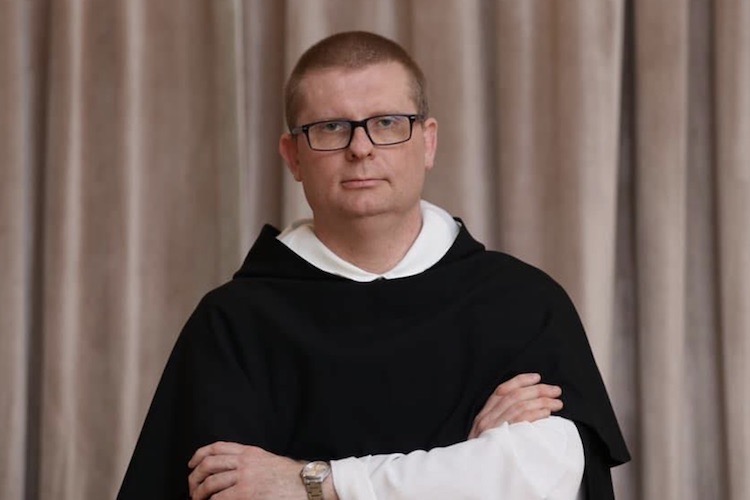
Faithful servant from St Ives retires after 50 years
May 26, 2022
Bishop Alan blesses a ‘nest’ for special needs children
May 27, 2022Fr Bob Eccles OP from the Dominicans in Cambridge has shared a letter from Fr Jaroslav Kraviec OP, a Polish member of the order who has been running relief missions to Kiev.
It is one of a series from which have been arriving via the Provincials of the Order and with the help of English and French translators. Fr Jaroslav is one of the Polish Dominicans who make sorties into Ukraine to bring relief, and the letters are published to encourage support. We reproduce below an extract from the latest letter, dated May 11.
“As I’m walking through springtime Kyiv, it feels like the war has just ended. Each day, the streets are filling with a growing number of people; new stores are opening up; new coffee shops, restaurants, and services are unlocking their doors. Even the bazaar, not far from our priory, is seeing merchants returning, although until recently it was just a mess of a place, since the adjacent building was destroyed two months ago by Russian rockets. It’s not particularly unusual.
“Since the beginning of war, 390 buildings in the capital, including 222 apartment buildings, have been damaged or destroyed; 75 schools, pre-school, and kindergarten buildings suffered damage, as well as 17 hospitals and healthcare facilities. Of course, if we compare them with Kharkiv, a great metropolis in eastern Ukraine, the numbers don’t seem so high; but every one of these places signifies real human tragedies, very often death and maiming of innocent people, and many resources that will be needed to rebuild them.
“The people of the destroyed villages around Makariv need help. The volunteers from the House of Saint Martin in Fastiv, joined by a group of Protestant volunteers from Rivne, managed to help rebuild walls and roofs for over 40 apartment buildings. They could only do it thanks to the help that comes to us from all around the world. Father Misha summed it up simply: ‘Without you, we don’t exist.’ Thank you for your solidarity with Ukraine!
“An old lady from Adriivka showed me doors and windows with bullet holes in her house. ‘I filled the holes the best I could to stop the drafts.’ I was trying to understand why Russians would shoot at the houses of old, sick people. ‘In the evenings when they got drunk, they would shoot without aiming,’ she said. The old lady continued, ‘Most of them were young boys, maybe 20 years old. Some in their forties.’
“…Another old lady told me that the Russians shot two Ukrainian soldiers in front of her house and then started burning the bodies. ‘I asked them, ‘What are you doing?’ They extinguished the fire, but they wouldn’t let me bury them.’ Other defendants of ours were murdered on the other side of her house. When she talks about it, her voice trembles and tears appear in her eyes. ‘I couldn’t do anything. For a few days, I was protecting the bodies from the dogs as they laid on the road.’ After a moment, she added that one day a Russian soldier came to her house: ‘Gramma, I decided to hide at your house. They forced me to shoot, and I don’t want this war. I am a Ukrainian. My dad is Ukrainian, and my mom is Buryat. I signed a contract. Later, we spent 30 days traveling to you. We had field exercises in Belarus. Gramma, how can I shoot at Ukrainians? Maybe my uncle or my brother is on the other side.’ The old lady told this story peacefully, with clear respect for this man.
“On Sunday, Father Igor celebrated his first Mass in Fastiv. The day before, he was ordained by Bishop Nicholas Luczok, the apostolic administrator of the diocese of Mukachevo and our brother in Saint Dominic. Igor is from Donbas. He was baptised in 2010 when he was 24 years old…His religious formation took place in Poland, in Warsaw and Krakow. Immediately after the war began, he requested to be sent back to Ukraine…
“Many brothers emphasized that Igor’s ordination, which took place on the 73rd day of the war between Russia and Ukraine, is a sign of hope. As he was giving thanks for the gift of priesthood, Igor said, ‘A journalist asked me recently what it means to become a priest in the time of war. I answered that I didn’t know. It is a mystery for me, which I hope Christ himself will help me to understand.’”
Pictured above is Fr Jaroslav Kraviec OP.




